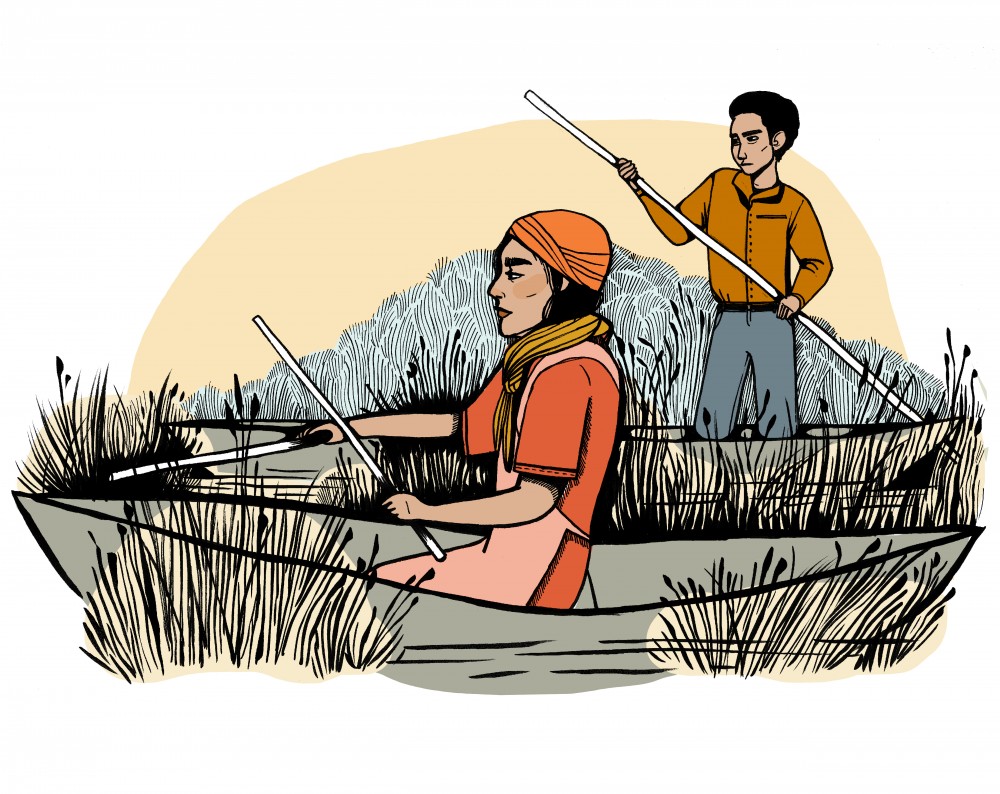The University of Minnesota Human Rights Student Association explored what some call an overlooked part of the environment conversation — climate change and Indigenous peoples — during a week of awareness on climate change and social justice issues.
On Tuesday, the student group invited Joye Braun, Standing Rock Reservation activist and front-line community organizer for the Indigenous Environmental Network, to speak on how climate change and other environmental issues directly affect Indigenous communities. Over the last few years, Indigenous peoples have been at the forefront of environmental justice movements, such as protests against reservation water pollution by oil pipelines in the Dakotas and destruction of the Amazon rainforest in Brazil.
“When extractive industries come in … they threaten biodiversity. We are part of that biodiversity,” Braun said. “We weren’t kidding when we say mni wiconi, ‘water is life.’”
Despite this, Braun said, Indigenous groups are rarely consulted on both national and international issues, like combating climate change and helping the environment. Some students who attended the HRSA event said that was the very reason they came.
“Often, Indigenous solutions to climate change get appropriated, in the sense that a company will come in while these Indigenous activists are doing all the hard work and labor, but someone can come in and capitalize on it,” said Charles Golding, vice president of the American Indian Student Cultural Center.
Golding added that often the original activism’s cultural significance, unique to Indigenous people, is often misappropriated and can lose its overall effectiveness.
“Many tribes and Indigenous people really believe and approach the world as other beings being relatives,” said Michael Dockry, assistant professor of forest resources and affiliate faculty in American Indian studies. “When you have something like climate change that’s negatively impacting relatives that you’ve been with for thousands of years, that’s problematic.”
Dockry, a member of the Citizen Potawatomi Nation and former U.S. Forest Service employee, worked extensively in “tribal consultancy” in the College of Menominee Nation. There, Dockry oversaw many conferences about climate change and what advice native tribes had to offer in response to it.
“What people don’t understand is that for many tribal communities, climate change is a symptom of our problems, it’s not the problem in of itself,” Dockry said. “Climate change is a symptom of our broken relationships with each other, and with the environment. We need to work on fixing that.”
Dockry also said he’s excited about the work the University of Minnesota is doing to strengthen relationships with local tribes. This includes the recent hiring of a senior director for American Indian Tribal Nations Relations, who will act as a liaison between Minnesota tribes and the University.
Braun said that change will come when we go beyond acknowledgement and discussion, but incorporate their voices, their stories and their knowledge of the land.
“People need to look to the Indigenous people, and start bringing them not only to the table, but allowing them to lead,” Braun said.








